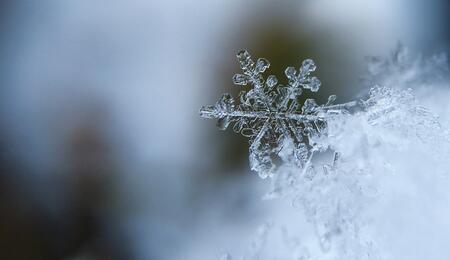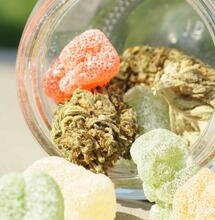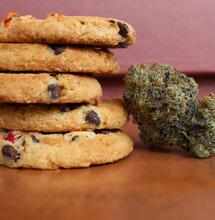Winter Cleaning

Winter is a great time to relax and hang out indoors. However, it's also a good idea to do some garden maintenance at this time of year. For indoor growers, perhaps you can sterilize your space between cycles. Doing this thoroughly each time the seasons change is a good way to keep to an annual schedule. Outdoor growers (weather notwithstanding) will find their spring garden chores a little easier if a few simple tasks are completed during the colder months.
Protection
Winter is a great time to relax and hang out indoors. However, it's also a good idea to do some garden maintenance at this time of year. For indoor growers, perhaps you can sterilize your space between cycles. Doing this thoroughly each time the seasons change is a good way to keep to an annual schedule. Outdoor growers (weather notwithstanding) will find their spring garden chores a little easier if a few simple tasks are completed during the colder months.
Indoors
The most important thing you can do as a grower is to keep your room(s) as clean as possible. Starting with a dirty space will only ensure that you will encounter problems along the way – even the best growers occasionally experience gardening tragedies, so it's better to do what you can to prevent these problems from arising. That is, don't tempt fate.
Surfaces such as black/white plastic are better replaced than cleaned; if you truly cannot afford to do so, you run the risk of harboring fugitives during the cold, dusty months. Some species of pests hibernate over the winter, so don't assume that they aren't there just because you can't see them. These beasties can hide in the corners, cracks and crevices of any grow space, so do your best to avoid using porous surfaces during construction. When purchasing equipment be sure to ask how and with what to clean it; the choices you make in grow room technology may help or hurt your process later on.
Plastic flower pots, plant tags, pH meters, shelving units – everything should be sanitized and disinfected, if possible. If nothing else, scrub off all the layers of nutrients and other products that build up over the months. While some swear by bleach and other hard-core chemicals to truly sanitize their space, others realize that harm that is done to the environment as a result of releasing these substances into the water supply. If whatever you are using is burning your eyes, it's probably bad news. Try researching recipes for household cleaning agents made from natural ingredients such as baking soda, lemon juice, or vinegar.
Outdoors
Any brick or patio surfaces may be cleaned with a wire- or hard plastic brush. Decking can be washed to remove any traces of contamination from your last harvest. Choices abound in terms of disinfectant products, although even those among you not concerned about the environment should be well informed about the choices you make regarding these chemicals. There is always the possibility that you can disturb or ruin the progress of your plants by contaminating them with these substances. Rinse everything thoroughly after washing.
As with indoor grows, now is the perfect opportunity to clean all of your pots, implements and other gardening equipment all at once. It's not just the area, pots and tools that need to be cleaned up: cutting back the dead, dry growth on your other garden plants is a good way to prevent infestations, mold, or mildew. These brown dusty clumps of dead vegetation are the perfect breeding ground for certain parasites, which inhabit the soil and incubate until nicer breeding weather comes along.
A bit of hard work now goes a long way towards the success of your next crop.



